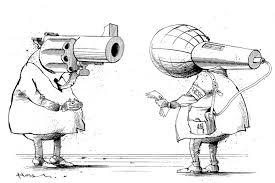This research offers a detailed examination of the concept through a Quranic lens, aiming at establishing its foundations, analyzing its key components, and identifying the obstacles that hinder its proper application. It also distinguishes between genuine expression and harmful practices such as rumor-mongering, falsehood, and slander. Using an inductive-analytical methodology, it collects and interprets relevant Qur’anic verses within their linguistic and exegetical contexts to construct a coherent framework for understanding freedom of expression in media.
The study of the research arrives at several key conclusions, the most important of which is that the Qur'an affirms freedom of expression as a fundamental human right, yet it regulates this freedom through a set of ethical and legal principles. While Western perspectives often emphasize absolute individual liberty, the Qur’anic approach strikes a balance between individual freedom and social responsibility, aiming at preserve communal stability and peace. Ultimately, the paper argues that the Qur’anic vision of freedom of expression in the media is neither a denial of freedom nor an unrestricted endorsement of it, but rather a comprehensive system that transforms speech into a tool for constructive discourse and societal reform.




Comments